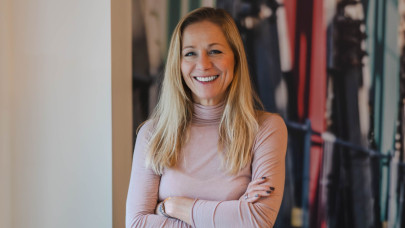– The issue of Women in Agriculture and gender inequality in the sector is the theme at the center of the fourth episode of Global Trends, the BKT Network format which explores the major issues of global agriculture with the help of international experts and guests.
Women are the backbone of rural communities and often account for a large proportion of the agricultural workforce worldwide.
Yet, often female workers do not have adequate access to essential resources and services, such as land, the availability of credit, training, and this disparity has a decisive impact on agricultural development and food production around the world.
According to the FAO, the United Nations Food and Agriculture Organization, agricultural businesses run by women produce up to a third less than those run by men. And this gap is not due to a lack of skills and experience, but to unequal conditions and opportunities which often penalize women. However, if the female workforce had the same access to resources as the male workforce, agricultural production could increase by 30 percent, allowing about 150 million more people to be fed, making a substantial and sustainable contribution to the fight against hunger and extreme poverty.
But exactly how many women are employed in the agricultural sector?
“Looking at Europe, women represent 42% of the workforce”, says Svetla Garbeshkova, CEO of Agro TV Bulgaria, a publishing and television group. "In addition, three out of ten agricultural businesses are run by women. These are very significant numbers which give us a real idea of the great contribution made by women to the sector: the development of agriculture without their involvement is unthinkable. I also believe that women can leverage some skills and characteristics which mark them out, such as the innate propensity for creativity, resilience and ambition to improve the agricultural business. And this is precisely what happened in Bulgaria, where the contribution of women working in this sector has proved to be fundamental for the further development and enhancement of local rural areas. I think it is therefore important to change the purely masculine perception that we generally have of agriculture."
Rekha Mehra, Gender Specialist and economist, is of the same opinion, commenting: "Everything starts from the preconception that a farmer must by definition be a man. There is nothing more wrong, just think that in some countries in the world agriculture is the main occupation for numerous women. The first step in changing this perception is therefore to make the women who work in agriculture visible. Action must also be taken to make working conditions for men and women equal. Often women, compared to men, have more difficulty in accessing fundamental resources and tools, such as credit, information and technology, land and even water and seeds. But the disparity is also evident in terms of wages. Yet, several studies highlight that if women were given the same opportunities and working conditions as men enjoy, agricultural production in developing countries would increase by up to 4%; in other words, millions and millions fewer people would go hungry."
Looking overseas, in the United States, women in agriculture represent the fastest growing demographic segment in the country. This trend was recounted and set out by Audra Mulkern, founder of Female Farmer Project, the multiplatform project which aims to enhance the role of women in communities and agriculture in general through the sharing of stories and experiences of different female protagonists working in the sector. “Female Farmer Project is a project that documents women in agriculture through photos and content and aims to raise people's awareness of the fundamental contribution played by female workers in communities and industry. In short, for me it is a question of correctly representing the figure of women in agriculture, inviting them to celebrate their decisive contribution to this sector. I must admit that we are making encouraging progress on this front, at least as far as the United States is concerned. We can finally say that the perception of women in agriculture is changing, especially in the new generations who tend to recognize the fundamental role played by women also in this area."
Farmers, but more besides. To overcome the challenges which modern agriculture poses, it is necessary to be able to count on the right leadership to accompany the transformation of the business by fully embracing sustainability but also diversity in the workforce. In this regard, Lucia Salmaso, CEO of BKT Europe states: "I know how difficult it can be for a woman to succeed in this sector, especially when it comes to reaching senior, decision-making roles. It is true, compared to the past the situation has improved, but even today we are penalized by numerous gender prejudices which hinder us in reaching positions of success. Yet, diversity can be a real competitive advantage for companies, essential to generate innovation and growth, and this applies to all sectors. As BKT we have always strongly believed in the themes of inclusion and diversity, and we are working to build an environment where everyone is respected and supported."
At this link you can see the entire episode: www.bkt-network.com/women-in-agriculture







